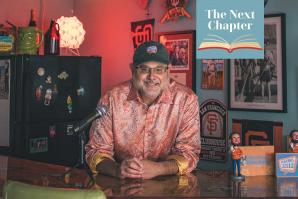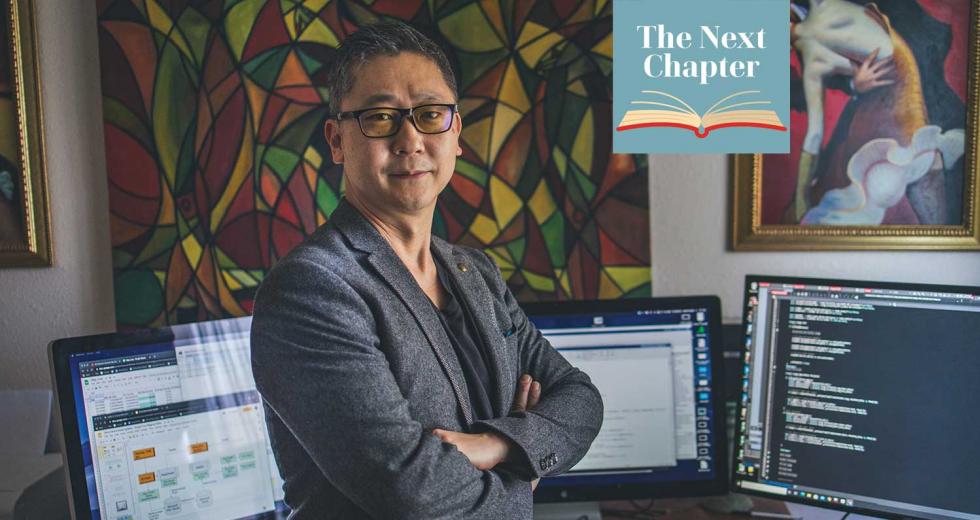In December 2019, a few months before the fastest drop in global stock markets in financial history, Mark Otero launched Alice Capital, a hedge fund designed to bypass emotion.
Alice Capital is a quantitative fund, or quant, that makes investment decisions based on mathematical methods instead of intuition. But while algorithms and software may be immune to emotion, their operators are not.
Otero, who is CEO, and his two partners decided to shut down Alice Capital’s systems to assimilate what was happening in the market during the crash, which took place between late February and early April 2020. Because they had reduced Alice Capital’s participation in the market, the investors didn’t make as much money as they could have. “Internally, we certainly didn’t feel good about ourselves,” Otero says. “Looking back, when we ran our systems again, (the systems) crushed the market during that period of time. And so that was a big lesson for us.” The partners could trust their software, even if their emotions told them not to.
Otero, 47, has learned many big lessons during his mercurial career. Though he has roots in the investment industry — he spent five years at Franklin Templeton — he’s best known in the Capital Region as the founder of KlickNation, the mobile game company he started in 2008 in a loft above a Midtown Sacramento frozen yogurt shop he owned and operated called Mochii. He opened the shop in 2007, a few weeks after finishing his MBA at UC Davis.
“The moment they stop feeling like they’re making progress in a game, which is achieving mastery, they no longer play the game. … That’s really the bottom line for me. It’s really about trying to achieve some form of mastery within a small part of the financial industry.”
At first, KlickNation was a money sink and relied on the yogurt shop’s profits and his savings, but a few hits attracted the attention of the gaming giant Electronic Arts. EA acquired KlickNation in 2011 for a reported $35 million — enough for Otero to join the ranks of the 30-something, startup-founder retirees who usually spawn in Silicon Valley and later litter the beaches of Malibu.
That lifestyle doesn’t attract Otero.
“When I go brain-dead is when I’ll retire,” he says. He stayed with the company — renamed BioWare Sacramento after the takeover in 2011 and EA Capital Games in 2014 — as general manager for another five years before leaving in 2016 to start work on Alice Capital. The gulf between gaming and investing may seem wide, but Candy Crush Saga and quants are powered by similar algorithms, Otero says. Programmers in both industries attempt to understand and monetize behavior and emotion.
Only a small percentage of players spend money in mobile games, so game designers “have to know an awful lot about the behaviors of that 2-3 percent, because they make your business,” Otero says. “I spent a great amount of time from 2016 to focus on if the marketplace also has that type of behavior.” He trains his software to detect anomalous behavior in the market and act on it. The process still isn’t perfect, as Alice Capital’s less-than-ideal performance during the recent crash demonstrated. That’s what keeps Otero hooked, like he was once hooked on the role-playing game Dungeons & Dragons.
People get addicted to games not for the graphics or music but for the satisfaction of making progress, Otero says. “The moment they stop feeling like they’re making progress in a game, which is achieving mastery, they no longer play the game. … With the financial markets and just how much data is out there, there is unlimited skill potential for those who are seeking to master. And so that’s really the bottom line for me. It’s really about trying to achieve some form of mastery within a small part of the financial industry.”
And if he ever gets there? “When I hit that level, I’ll find something else to solve within the financial realm,” he says. “I’m certain of it.”
–
Stay up to date on the effects of the coronavirus on people and business in the Capital Region: Subscribe to the Comstock’s newsletter today.
Recommended For You

Status Check: Playing the Long Game
Veteran games developer and former KlickNation owner Mark Otero resurfaces with hedge fund Alice Capital
Mark Otero left Electronic Arts and Capital Games, the subsidiary he helped found, with a strict noncompete agreement.

Camera Ready
The Next Chapter: Michele McCormick sold her public relations company and became a model-actor-photographer
MCC Communications founder Michele McCormick is a model, actor
and photographer who specializes in travel and nature
photography.

Agriculture and Beyond
The Next Chapter: Pam Marrone, pioneer of biological agricultural products, expands her reach through advising
Pam Marrone, who retired as CEO of Marrone Bio Innovations in
2020, didn’t take a break; she still works 10-12 hour days.

‘Somebody’ Again
The Next Chapter: Carl Landau, the former owner of Niche Media, launches a podcast from his garage
Carl Landau had spent 37 years in publishing and event organizing
when he decided to launch Pickleball Media last year.




